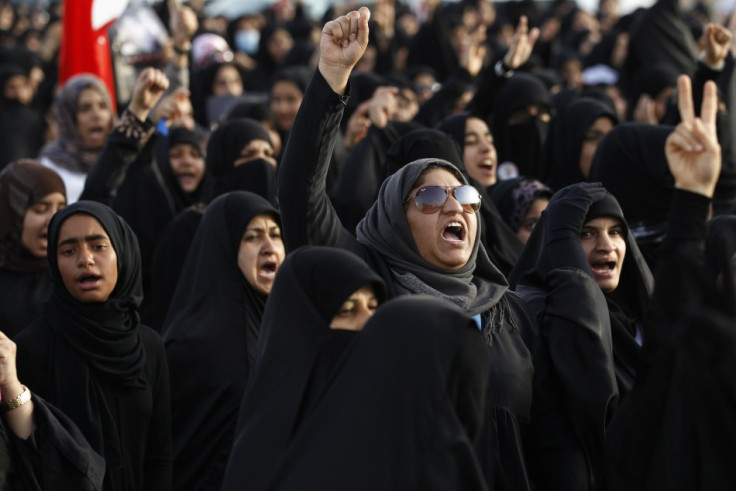Bahrain Fails to Give Justice to Protesters, Amnesty Says

Amnesty International has published a report warning that human rights abuses continue in Bahrain - just days before the island state plays host to the Grand Prix.
The 58-page Flawed Reforms: Bahrain fails to achieve justice for protesters reveals that the reforms advocated in the royally appointed Bahrain Independent Commission of Inquiry's (Bici) report have failed to safeguard justice for victims of human rights violations.
Amnesty warned that the government response to the report has overhaul been inadequate.
The findings fly in the face of government claims that most of the Bici recommendations have been implemented after the heavy-handed crackdown on pro-democracy protesters in February and March 2011.
"With the world's eyes on Bahrain as it prepares to host the Grand Prix, no-one should be under any illusions that the country's human rights crisis is over," said Hassiba Hadj Sahraoui, Amnesty International's Middle East and North Africa deputy director.
"The authorities are trying to portray the country as being on the road to reform but we continue to receive reports of torture and use of unnecessary and excessive force against protests. Their reforms have only scratched the surface."
International Experts
Activists have for months denounced the excessive use of force and resort by the authorities to teargas, torture, intimidation and arbitrary arrests and detention.
Following criticism of police brutality Bahrain appointed former Scotland Yard counter-terrorism chief John Yates and former Miami police chief John Timoney to oversee police reform.
Activists accused the two men of actively trying to portray the regime and its security forces as open to reform but alleged that the brutality continued. Amnesty gave weight to the criticisms, saying that little had changed over the last year.
"The government's huge financial investment in international experts to help them reform will go to waste unless it shows real political will to take difficult decisions - in particular, holding to account senior members of the security forces accused of violations, releasing prisoners of conscience and addressing the underlying discrimination against the Shia majority population."
Lack of accountability
Following the crackdown, the government had pledged to hold members of the security forces responsible for human rights violations. Accountability was one of main demands of protesters and members of the opposition.
More than a year on and no senior members of the security forces, including the National Security Agency and Bahrain Defence Force, have been held to account, Amnesty said.
"A number of security officers accused of being responsible for torture during last year's protests are believed to still be in their posts without having been investigated," the report added.
The watchdog also pointed at that even in the cases where security forces had been charged in connections with the deaths of protesters, they had not been suspended for investigation.
Prisoners of Conscience
Hundreds of people have been arrested, tried in military courts and sentenced to long-term prison sentences for peacefully taking part in protests, said Amnesty.
In April 2011 several opposition members and activists were arrested and accused of plotting against the royal regime, including human right activists Abdulhadi al-Khawaja, who has been on hunger strike for more than two months to protest against his detention.
Torture and continued violations
Despite the introduction of new measures, Amnesty said: "The security forces remain largely unaffected by these institutional changes. Although they have reduced the use of shotguns since late 2011, security forces continue to face protesters with unnecessary and excessive force - particularly tear as, which has resulted in several deaths in recent months. At least 60 people have now been killed in connection with protests since February 2011."
The document confirms Amnesty has continued to receive reports of torture and ill-treatment in unofficial detention places, including unused government buildings, police vehicles and in open areas.
© Copyright IBTimes 2024. All rights reserved.






